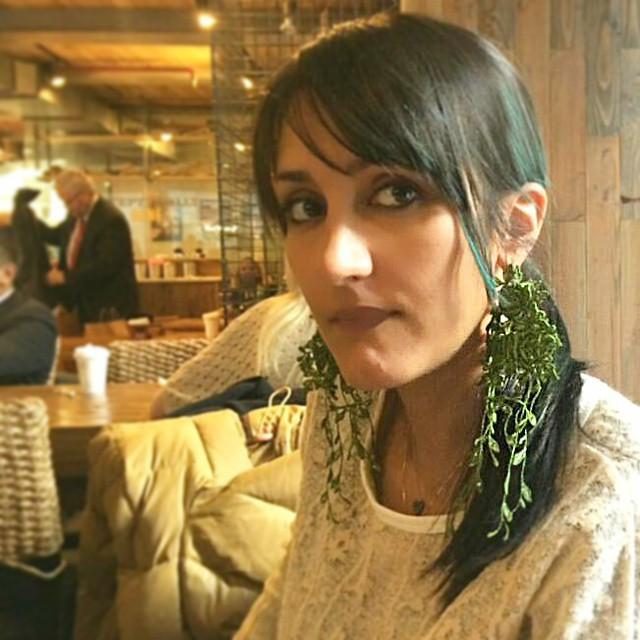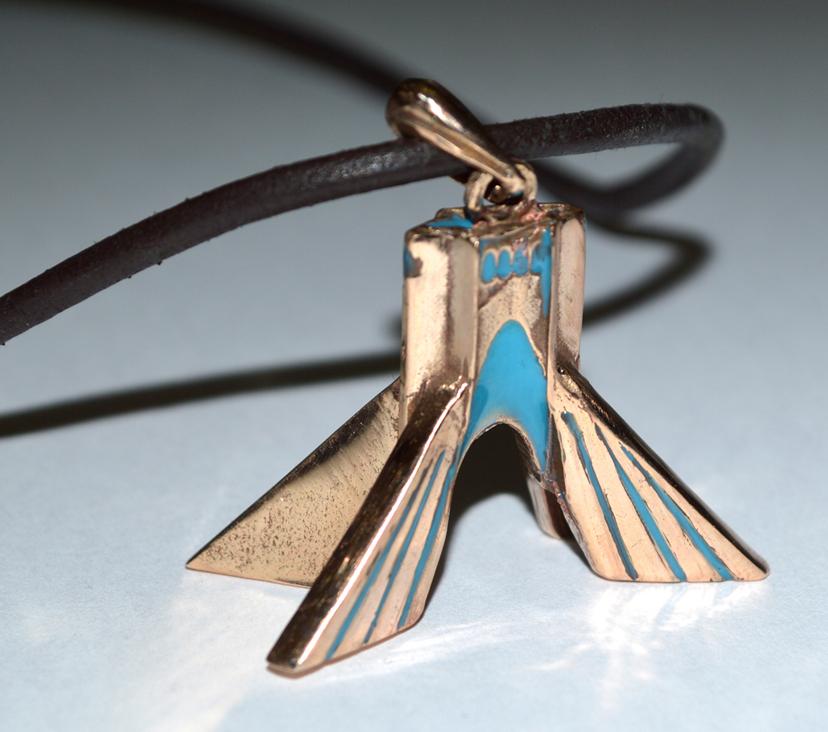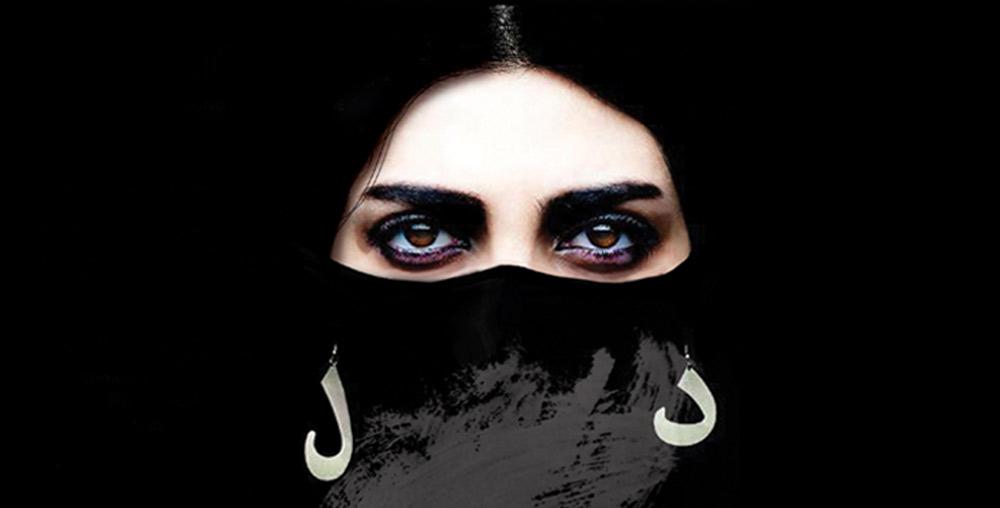Golshid Mola wants to introduce the works of underground Iranian designers to the world.
Back in 2000, Golshid Mola was a graphic design student at Tehran's Azad University.
She belonged to a small but close-knit community of artists and designers. "We made hand-made jewelry, clothing, even home decor," she recalls. "It was a lot of fun."
But their reach was limited to their friends and family. The Internet crawled along at a snail's pace, making it difficult to showcase their work to the outside world.
A few years later, Mola was in New York City, working at an ad agency after graduating from New York University. Yet she kept thinking about the friends she left behind in Tehran. Every time she visited, she was surprised at the vibrancy of the city's art and design communities, even despite the limitations artists face in Iran.
"Everyone was talking about the Iranian underground music scene, but there was also this very active underground art and design scene as well," she says.

She came up with the idea of a website that would showcase the works of those independent, underground artists and designers based in Iran. Alangoo was born.
Mola wanted the website not only to be a showcase for the works of these designers, but also an online marketplace. There was only one problem: US sanctions against Iran.
"Because of the sanctions, there's no relationship between the banks in Iran and the banks in the US," says Kaveh Miremadi, an attorney in Washington, DC who specializes in sanctions. "If I wanted to do a transaction or do business with someone in Iran, there's no way for me to send money to that person in Iran, and there's no way for that person readily to send money to me here in the United States."
That means Mola has to be extremely cautious when she wants to work with designers based in Iran. Violating US sanctions can mean big financial fines, or even up to 20 years in jail.
"It's heartbreaking," Mola says. "There are a lot of these designers who are currently living in Iran that we cannot work with because of the sanctions."
Farish Alborzkouh is one of the rare Iran-based designers that Mola works with. She makes what she calls "wearable art." One of her pieces is a bronze pendant in the shape of the Azadi tower, a famous landmark in Tehran.
"Alangoo has helped introduce me to the world," Alborzkouh says via Skype from Tehran. "I have been hearing from people who knew nothing about me or my art." That even includes people in Iran itself.
Mola is able to work with Alborzkouh because she makes wearable art and art is not considered part of the US sanctions against Iran.
But this is a rare success story. Miremadi, the Washington attorney, says he hears from entrepreneurs like Mola all the time. He often has to tell them their ideas won't work under US law.
"It could be a kind of a downer when you talk to somebody who might have this grand idea about a business plan and you have to bring them down to reality a little bit," he says.
Sometimes Iranian-Americans aren't even aware of how extensive the sanctions are. "It surprises so many people when they find out," Miremadi says. "They've maintained a bank account in Iran for years and they don't realize that maintenance of that account is, in and of itself, a violation of sanctions."

The US treasury does make exceptions. For example, if an Iranian-American has inherited a house in Iran, they can technically transfer the money to the US. But Miremadi says it's much more difficult in practice.
"Most of these transactions would have to go through a third country, and a lot of those banks, even in a third country, are very hesitant to get involved in a transaction involving Iran," he says. Even with the law on their side, those banks are worried about "the threat of secondary sanctions or possibly looking like they're too favorable with Iran and losing favor with the United States."
For her part, Mola says she's constantly checking with her lawyers to make sure she is not breaking any regulations. It's a time-consuming and expensive proposition, and she's always worried about breaking the law.
But she's still motivated by the reactions she gets from the designers she works with — and her customers.
"For the Iranian diaspora, it's really important," Mola says. "It makes them feel good and … excited about wearing something that has a piece of the homeland."
Mola is following the ongoing nuclear talks between Iran and the West, hoping that they come up with an agreement. If they do, it could mean less pressure on businesses like hers, and more chances to build bridges between America and Iran.
Our coverage reaches millions each week, but only a small fraction of listeners contribute to sustain our program. We still need 224 more people to donate $100 or $10/monthly to unlock our $67,000 match. Will you help us get there today?
